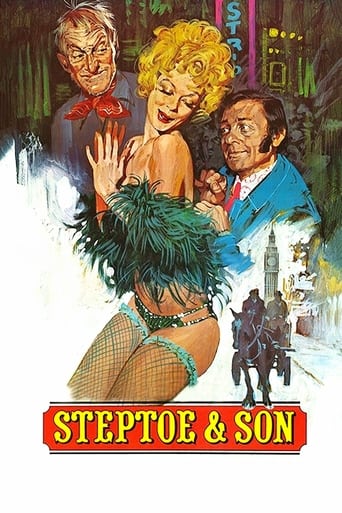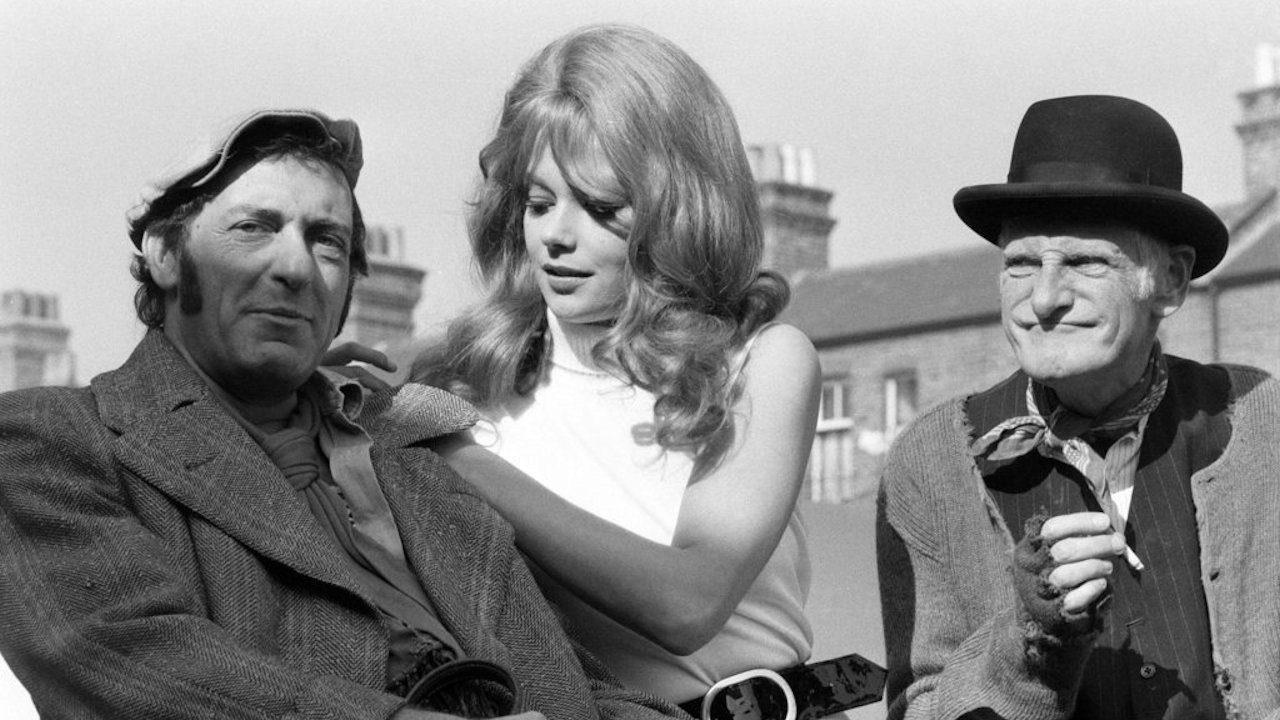Nmkl Pkjl Ftmsch
The seventies marked the beginning of a long, slow decline for the British film industry, a sorry state of affairs that continues to this day. The once-proud Hammer studios, which had once flooded both the domestic and overseas markets with a steady supply of richly atmospheric horror films, had unwisely branched out into cheapskate big-screen spin-offs of previously popular sitcoms. The mighty Rank studios merged with Xerox, a company better known for making photocopiers, and the legendary EMI shortly followed suit, merging with Thorn, a company that manufactured light bulbs and fire extinguishers. Curiously enough, this sudden and irreversible decline in the fortunes of the heavy hitters paved the way for a short-lived golden age of British exploitation cinema, with the likes of Pete Walker and Norman J. Warren pushing the envelope in terms of gory violence and soft core sex as far as they dare under the baleful gaze of the censor, and fly- by-night operators churning out endless variations on the tried-and- tested Carry On formula with the added attractions of simulated sex, full-frontal nudity and scores of familiar faces from the television looking mightily embarrassed in cameo roles. Which brings us to the first of two big-screen outings for England's favourite rag and bone men, the inimitable Albert Steptoe and his long- suffering son Harold. Steptoe and Son first made their mark at the BBC back in 1962 in a one-off Comedy Playhouse instalment called the Offer; the episode made such an impact that the BBC commissioned a full series shortly thereafter. Between 1962 and 1965, there were four series of Steptoe and Son before the series' creators, Ray Galton and Alan Simpson, decided they'd exhausted its possibilities and moved on to pastures new. However, the characters of Harold and Albert were too good to be left to the tender mercies of the public's brief attention span, so a further four series were commissioned between 1970 and 1974, this time in glorious colour (though, true to form, only about half of the colour episodes actually exist in this format; the rest were wiped and the only copies left in the BBC archives are off-air black and white video recordings). The first Steptoe and Son film premiered in the same year as the seventh television series, regarded by many fans as the high watermark of the entire run, thanks to memorable episodes like 'Men of Letters', 'Divided we Stand', 'Oh What a Beautiful Mourning' and 'the Desperate Hours', so expectations for the feature were understandably high.Unfortunately, what cinema audiences got was a crude, half-hearted piece of work, long on bathos but painfully short on comedy, with a more-than-usually neutered and psychologically crippled Harold, a far less sympathetic Albert and a non-starter of a central plot in which Harold marries a stripper named Zita. As you might expect, the first half-hour or so of the film doesn't stray too far from the series' origins, and it also contains many of the film's stingy quota of highlights - most notoriously, Albert taking a bath in the kitchen sink. The scenes in the football team's social club offer a convincingly seedy glimpse of a long vanished world, and the scene where Harold and Zita meet for the first time is nicely played and actually rather touching. After this, though, repetition and coarseness begin to set in, and the screenplay contains more padding than a cheap settee - the endlessly delayed wedding and the doomed honeymoon in Spain (something of a missed opportunity, since effectively all that happens is that Albert succumbs to food poisoning, ruins his son's wedding and has to be returned home - whereupon he naturally makes a speedy recovery) find the supply of laughs slowly drying up, and by the time the film reaches the halfway mark all but the staunchest Steptoe fans will be feeling bewildered and cheated by the sudden gearshift into unsubtle maudlin sentimentality from which the film never really recovers. Some scenes feel more like a precursor to the reliably depressing EastEnders than a lighthearted (if gritty) situation comedy.Technically, the film is pretty shoddy also, with poorly recorded sound, some shocking dubbing - particularly during Mike Reid's stand-up routine, where the audience laughter seems to be coming from a different room entirely - and some very iffy continuity to contend with. Cliff Owen's direction is functional at best, though as other critics have noted, the scene in which Harold is beaten up in a rugby club has a horribly botched, half-finished feel to it, hardly helped by the sad fact that such an incident was horribly misjudged in the first place - genuine violence or malice seldom made it into the Steptoe world on television. Luckily, Galton and Simpson were offered a second chance at transferring their iconic characters to the cinema with 1973's Steptoe and Son Ride Again, a far superior film which manages to keep the laughs coming throughout and feels more faithful to the series as a result.
ShadeGrenade
User 'Cosmo-Bongo' and his wife must have led very sheltered lives if they found this film 'horribly upsetting'. For millions of British working class people at that time, this was their way of life; cobblestones, tin baths, outside toilets, and all. If I were you, sir, I'd stay well clear of 'A Clockwork Orange'. It'll most likely give you a stroke! The boom in films-based-on-British-sitcoms started in 1969 with 'Till Death Us Do Part and ended in 1980 with 'George & Mildred'. In between there was 'Dad's Army', 'On The Buses' ( three films in fact ), 'Man About The House', 'Please Sir!', and 'For The Love Of Ada' to name but a few. 'Steptoe & Son', while not a patch on the television series, is nevertheless an above average movie. Harold and Albert go to a stag night at the local rugby club, where the former is smitten by the vivacious stripper Zita ( Carolyn Seymour ). So smitten, in fact, that he proposes to and marries her. Of course the 'dirty old man' does not like this one little bit. When the couple go to Spain on honeymoon, he goes along with them, but gets food poisoning, and demands to go home. Harold is forced to leave his bride behind, where she is easy prey for the randy hotel manager...Being a film this is of course ruder than the series. Harold uses bad language, there's nudity ( even Albert gets to display his bare bottom ), and lots of frank talk about sex. The conflict between the Steptoes escalates into full-scale war. Carolyn Seymour is terrific. No wonder she was later asked to strip in workingmen's clubs for real! Also in the cast are Mike Reid ( who went on to become a star through 'The Comedians' television series ) and Perry St.Clare ( an alias for female impersonator Patrick Fyffe, later to become 'Dame Hilda Bracket' ). The film is a bit like 'The Bargee' ( also by Galton & Simpson, and starring Corbett ) in that it too moves from comedy to tragedy and back again. Corbett and Brambell are on sparkling form, particularly when they debate the future of the strange baby they've found in their stable. Only the scene near the end where Harold is beaten up by drunken Old Wendovians doesn't work. Favourite bit? The old man bathing in the kitchen sink. You don't want to know where he puts the dish brush. Standing up, he accidentally exposes himself to a neighbour ( Patsy Smart ).The film did well enough for a superior sequel two years later, entitled 'Steptoe & Son Ride Again'.
gnb
It was something of a trend in the 70s to make film versions of popular sit-coms of the day. With one or two exceptions these were cheaply made, second-rate efforts intended to cash in on the success of a popular TV show and were therefore largely embarrassing to watch. The first Steptoe and Son movie does, however, work fairly well.The grit and seediness of the Steptoe's environment transfers very well to film and we get a valuable glimpse of a part of London which was grey, dilapidated and depressing...something we are never privy to in the TV series. With film censorship being slightly more relaxed than what could be seen or heard on television we get some hilarious outbursts from Harold and Albert, liberally peppered with swear words.Of course the TV version of Steptoe is a sit-com and while this is funny in places the genuine tragedy of Harold and Albert's situation takes centre stage. Harold ends up getting hitched to a stripper but the match is doomed from the start due to his mixed feelings: all he wants to do is get away from his father and make something of himself yet abandoning him is the one thing he cannot do. We really do sympathise with Harold's plight in this movie and despise Albert's deviousness and thwarting him at every turn.Of course, such sombre elements existed in the TV programme but due to them being mixed with relatively rapid comedy in 25 minute slots we accepted the character's situation without dwelling on it too much. This time round, with a longer running time and the tragi-drama fleshed out it sometimes makes for uncomfortable viewing.All the leads perform well and this is a better example of how TV sit-coms could work as cinema spectaculars. Indeed, even if the characters weren't known from TV this has the potential to function well as a stand-alone movie.See it and be pleasantly surprised.
Tom May
"Women? They're all scrubbers...!" No, not a good translation; not at all! This lags behind the previous year's "Dad's Army", entirely missing the special, small-screen magic of the seminal television sitcom original, and failing to play interestingly at all with the big screen... you could just about say that this film well represents a Britain entering decline, and more precisely even than that, a *British film industry* entering decline. And that is hardly a recommendation, is it? To be an exemplar of saddening folly...All that remains after the subtlety of the TV original has been surgically stripped away, by Cliff Owen, Galton and Simpson are: endless, dilapidated musical cues, yawn, from the Ron Grainer theme... bolstered sentimentality (that shoddy, thick-eared ending... how much bolder does the second Steptoe film seem in comparison) an increased seediness - with director and writers seemingly detaching themselves completely - fully applicable to something like the 'misbegotten monstrosity' (yours truly on this site) from 1973, "The Mutations". There is a strangely botched, cut-adrift tone about the scene where Harold is beaten up in a rugby club, that I partly hate and recoil it (so far, as a friend intimated, from the mood of the TV series...), but this at least seems an original slant, and emblematic of tensions just rising to the boil in the Britain of 1972... There is, however, an implied prostitute, aye of a 'heart-of-gold' who turns loose woman-traitor 'pon poor auld 'Arold - and beyond-caricature writing of the 'class' element; not to mention, surprisingly misjudged performances from the usually redoubtable leads. Brambell and Corbett collude with the script, and indeed fail to cure it of an essential ham. What would Anthony Aloysius Hancock have made of it all...? I will merely concede that a few moments just about work - chiefly those where G & S play things a little more carefully and B & C touch tenderer nerves - and it is not on the whole an unwatchable affair. But, and oh, how this pains me to say it: it is tiresome, boring, both wilfully detached from reality and what made the TV series great, and also fully in tune with the lazy, tawdry, misogynist 'fuck it, that'll do...' actuality of much of what was allowed to pass for mainstream film-making in the Britain of the time.


 AD
AD



